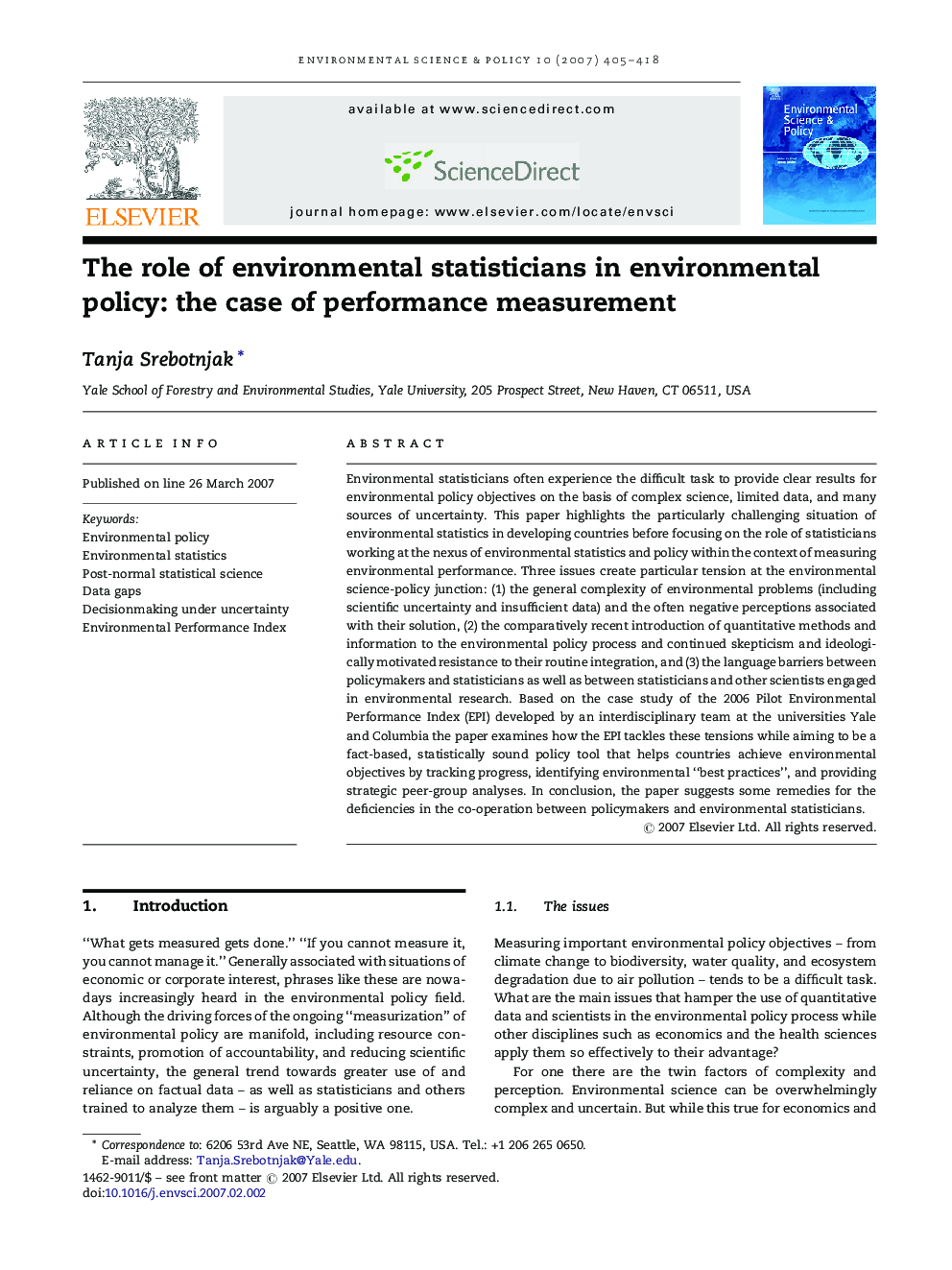| Article ID | Journal | Published Year | Pages | File Type |
|---|---|---|---|---|
| 1054341 | Environmental Science & Policy | 2007 | 14 Pages |
Environmental statisticians often experience the difficult task to provide clear results for environmental policy objectives on the basis of complex science, limited data, and many sources of uncertainty. This paper highlights the particularly challenging situation of environmental statistics in developing countries before focusing on the role of statisticians working at the nexus of environmental statistics and policy within the context of measuring environmental performance. Three issues create particular tension at the environmental science-policy junction: (1) the general complexity of environmental problems (including scientific uncertainty and insufficient data) and the often negative perceptions associated with their solution, (2) the comparatively recent introduction of quantitative methods and information to the environmental policy process and continued skepticism and ideologically motivated resistance to their routine integration, and (3) the language barriers between policymakers and statisticians as well as between statisticians and other scientists engaged in environmental research. Based on the case study of the 2006 Pilot Environmental Performance Index (EPI) developed by an interdisciplinary team at the universities Yale and Columbia the paper examines how the EPI tackles these tensions while aiming to be a fact-based, statistically sound policy tool that helps countries achieve environmental objectives by tracking progress, identifying environmental “best practices”, and providing strategic peer-group analyses. In conclusion, the paper suggests some remedies for the deficiencies in the co-operation between policymakers and environmental statisticians.
